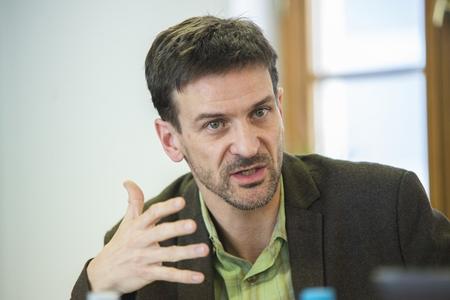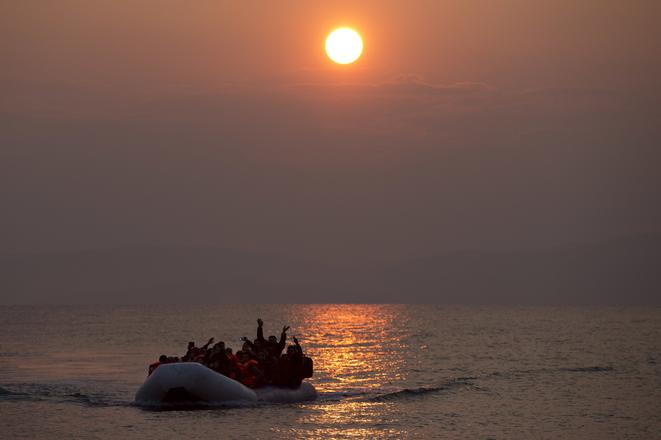On the morning of June 29, the 27 member states of the European Union signed an agreement which solved the crisis threatening to topple the German government and split the Schengen group, the Sme daily wrote.
The negotiations preceding the agreement lasted for almost 10 hours.
The agreement aims to solve the issue of re-allocating migrants arriving in Europe from the sea and to relieve those countries on whose shores they land as their point of entry. The main pillar of the agreement, supposed to help countries like Italy where the biggest number of migrants can currently be found, is the building of centres in member states which will decide on the status of asylum seekers. Those granted asylum will then be taken over by member states on a voluntary basis.
The prime ministers of the Visegrad Group (V4) countries (Slovakia, the Czech Republic, Hungary and Poland) have praised the fact that quotas for the re-distribution of migrants are no longer involved, the daily wrote.
Slovakia will help its neighbours
"Slovakia can accept as many as 1,200 migrants to assist neighbouring countries that find themselves in need; however, no migrants will come to Slovakia without the government’s consent," Slovak Prime Minister, Peter Pellegrini, said on June 29, in reaction to the agreement on migration achieved at the EU summit in Brussels.
He considers the talks in Brussels quite challenging as they took 10 hours and did not end until five in the morning.
“We managed to create a document that the Slovak Republic, but chiefly the European Union can be satisfied with, as we all bear responsibility for the European Union...,” Pellegrini added, as quoted by the TASR newswire. “I appreciate that the discussion has moved from the level of enforcing relocation and mandatory quotas to the level of rigorous external border protection, which was one of the main issues.
Pellegrini further said that this is something Slovakia has been pushing for, for a long time.

In line with the wording of the agreement, the Frontex Border Protection Agency will be bolstered in terms of budgeting as well as technical equipment and staff. In the fight against human traffickers, it will also be able to intervene against ships that disrupt the activities of the Libyan Coast Guard.
"The EU was invited to revise the system of dealing with hot-spots in third countries," the PM said, as reported by TASR.
However, if any migrants arrive in EU countries, it has been agreed that “controlled centres will be set up in the first-line countries”, though these would be established on a voluntary basis.
“Slovakia needed to be assured that no mandatory re-distribution conditions would apply,” Pellegrini continued, as quoted by TASR.
Slovakia perceives instead that it has the capacity to provide temporary help – for example, by sheltering asylum seekers from neighbouring countries that find themselves overloaded, such as Austria.
“Slovakia is able to accept as many as 1,200 migrants this way, in a kind of start-up facility,” he added for the newswire.
Interior Ministry satisfied
Interior Minister Denisa Saková is satisfied with the final wording of the agreement on migration, concluded by the EU leaders in Brussels in the early morning hours on June 29, the ministry spokesman, Petar Lazarov, told TASR. Since the very beginning, Slovakia has been pushing for its own strategy based on voluntary solidarity and chiefly on protecting the external Schengen border.
“The final agreement is beneficial for Slovakia, as well as for the entire European Union,” Lazarov noted.
He stressed the need to keep focusing on protecting the borders that are attacked by the migration wave the most.
“It’s necessary to pay attention to the functionality of the hot-spots and detention centres, as well as coast guards and to limit the smugglers’ ability to do a lot of business from the migration crisis,” the spokesman commented. “We’ll keep pursuing the policy of individual voluntary solidarity.”
He went on to mention that over 240 Slovak police officers served on the borders of Macedonia, Serbia, Hungary, Poland and other countries last year.
The Interior Ministry is ready to maintain cooperation either through the Frontex agency or in any other way. The Ministry will keep seeking ways to address this problem; “however, the sovereignty and safety of Slovak citizens still comes first”, Lazarov stressed.
The agreement also includes more funds for Turkey and a little progress concerning Brexit, as well as prolonging sanctions against Russia, Sme wrote on June 30.


 Migrants arriving on the Greek coast, illustrative stock photo. (source: AP/SITA)
Migrants arriving on the Greek coast, illustrative stock photo. (source: AP/SITA)